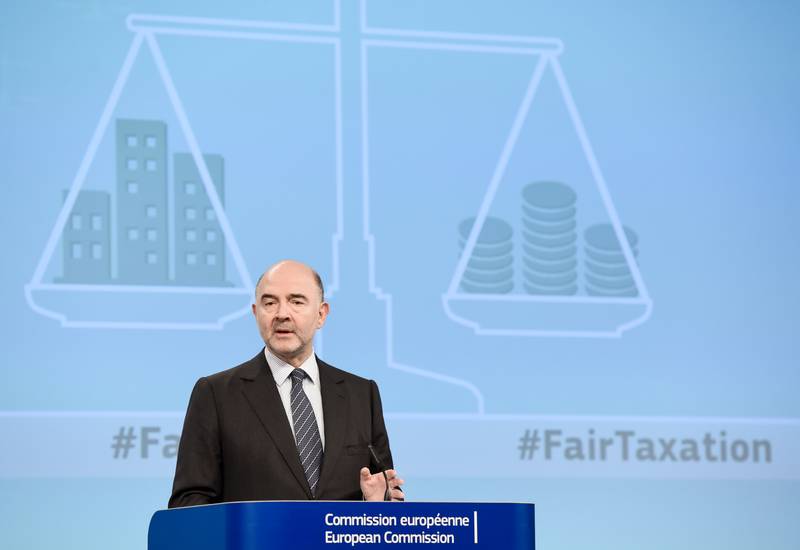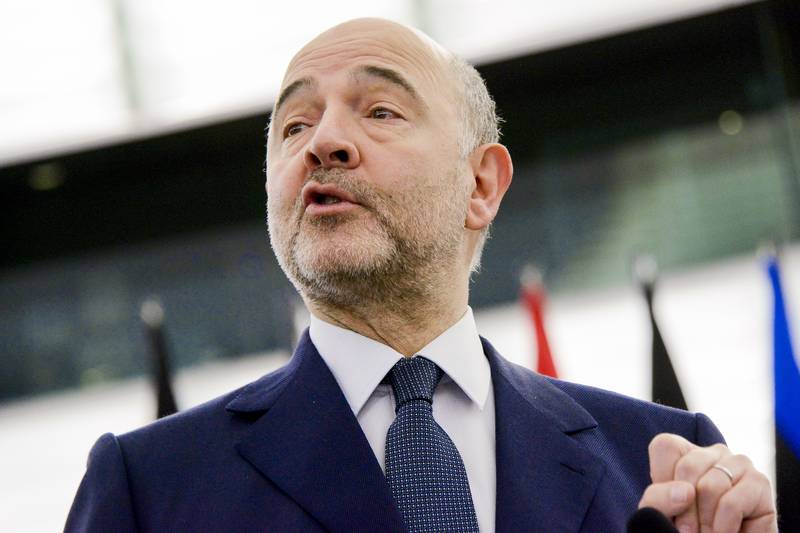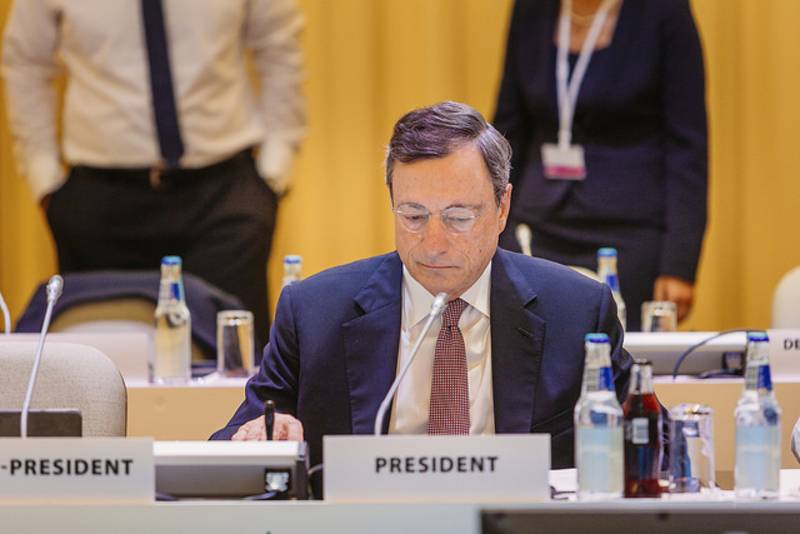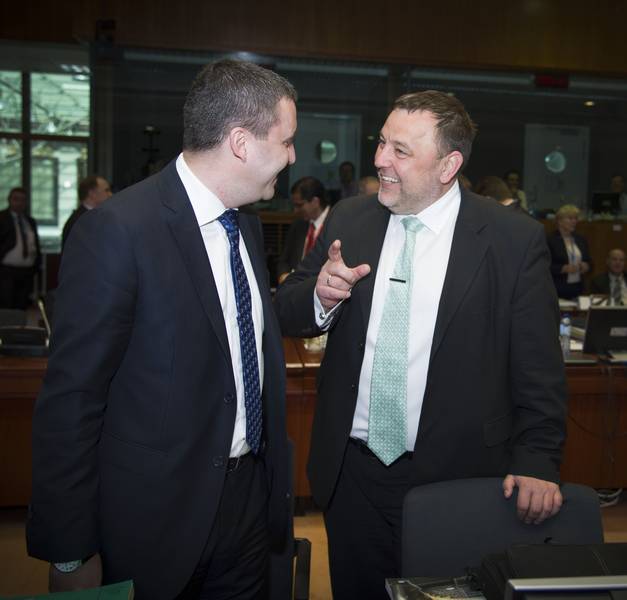The Tax Avoidance Battle: Nations vs. Multinationals
Adelina Marini, February 4, 2016
 At least this is the goal – member states safeguarding their social models by preventing trans-border operating multinational companies from avoiding “their fair share” of the tax burden. According to the European Commission, small and medium-sized enterprises in the EU pay 30% higher tax burden than large multinational companies. With the package for fighting tax avoiding, however, the EC will hardly deal with the patchwork of legislation in the EU, which many of the multinational companies successfully take advantage of. The reason is that the proposed measures leave too much freedom to member states in determining their tax policies. The commissioner for tax issues, Pierre Moscovici (France, Socialists and Democrats), explained this with the difference between what is possible and what is desired. Most political groups in the European Parliament criticised the lack of ambition in the Commission’s proposal, submitted on January 28th and discussed in Strasbourg on February 2nd.
At least this is the goal – member states safeguarding their social models by preventing trans-border operating multinational companies from avoiding “their fair share” of the tax burden. According to the European Commission, small and medium-sized enterprises in the EU pay 30% higher tax burden than large multinational companies. With the package for fighting tax avoiding, however, the EC will hardly deal with the patchwork of legislation in the EU, which many of the multinational companies successfully take advantage of. The reason is that the proposed measures leave too much freedom to member states in determining their tax policies. The commissioner for tax issues, Pierre Moscovici (France, Socialists and Democrats), explained this with the difference between what is possible and what is desired. Most political groups in the European Parliament criticised the lack of ambition in the Commission’s proposal, submitted on January 28th and discussed in Strasbourg on February 2nd.
What is the EC proposing?
The LuxLeaks scandal untied the hands of the EC and the EP to request further cohesion in taxation policy – a taboo subject in the EU until now. The European Parliament played an important role in this scandal in changing the attitudes towards tax policies with the work of the TAXE special committee, whose term got extended before Christmas. The committee deals with investigating special tax rulings, which some member states do in an attempt to attract large companies. Another stimulus for a change in tax attitudes on European level is the long-awaited project of the Organisation for Economic Co-operation and Development (OECD) and the G20 for fighting the loopholes in tax legislation on a global scale. The group of the twenty economically most advanced countries accepted the project about tax base erosion and profit shifting (BEPS), which allowed work on its implementation to begin in the EU as well.
According to Pierre Moscovici, however, there is a clear and present danger that not all EU countries will implement it, for some of them are not members of OECD. It says in the Commission’s announcement that many member states have announced their intention to implement the solutions, suggested by the OECD, but “there is a risk that they will do so in divergent ways or have varying interpretations of the OECD BEPS measures”. This is why, the EC proposes several measures, which are based on the BEPS project but they are said to go even further. The directive for fighting tax avoidance is in the package. The first problem is that it is a directive, rather than a regulation. The first one is a far more flexible legislation, which leaves space for manoeuvres to member states, while the regulation is solid European legislation, which is adopted with no changes by member states.
This way the Commission is trying to create a favourable environment for a discussion on the subject, which, as was said in the beginning, is a taboo, especially in today’s highly inflamed political situation. A change in the directive for administrative cooperation is suggested as well, which would institute an automatic information exchange about the country-by-country reports of the multinationals. This is one of the neuralgic spots in the proposal, because the left-wing in the European Parliament demand these reports are public, but Commissioner Moscovici, although supporting transparency in principle, stated that at this stage those reports would remain confidential, for it is not yet clear whether they could harm competitiveness. This subject was strongly criticised by MEPs due to the lack of impact assessment on it.

In the package there is also a recommendation to member states on how they should improve their tax treaties with companies, so that they do not create possibilities for abuse. According to OECD’s conservative estimates, the losses from tax avoidance globally amount to between 100 and 240 billion US dollars annually. This is the equivalent of 4-10% of the global revenues from corporate tax. According to the research body of the European Parliament, the losses on the EU level are between 50 and 70 billion euro.
The tax avoidance directive has six components. The controlled foreign company rule aims to prevent shifting profits to a country with low or non-existent taxes. At the moment, companies are able to shift their profits to dependent companies, operating in countries with low tax rates, thus lowering their tax bases in the EU. With the introduction of this rule they will still be able to shift profits, but only after they have been taxed in the EU. This is why the taxation package has an external strategy for cooperation with third countries, especially tax havens. This, however, got criticised in the European Parliament during the proposition debates, for there is still not a clear definition on what exactly a tax haven is.
The second component of the directive is the switchover rule. At the moment, if a company from the EU invests in a company from a country with low taxes outside the EU the dividends paid back to the European company are treated by member states as already properly taxed in the third country. Many times, however, this is not so, thus the introduction of the switchover rule, which will mandatory tax dividends if they have not been properly taxed in the third country before that. Here, too, the external strategy will be expected to do a good job, so that the uninterrupted exchange of information is secured.
Another problem the directive will attempt to solve is the situation where companies avoid taxation by transferring assets. For example, a pharmaceutical company in the EU develops a new product and deducts the R&D expenses from the taxable profit. When the product starts generating profit, the company moves the product to a no-taxes country and registers the patent there. This way the EC feels that the value of the intellectual property remains untaxed. With tax exit rule member states will tax the product before it is moved abroad.
A limit to the interest rates on inter-company credits, aimed at avoiding taxes, is planned as well. At the moment a EU company can establish a branch in a third country with low taxes, which extends a loan with high interest to the mother-company or another of its branches within the EU. The directive will limit the size of interest rate that the company can deduct. Another measure is fighting hybrids. Those are companies, which take advantage of discrepancies between member states to avoid taxes. A company is used as an example, which operates in two member states and establishes a new legal entity in one of the two. The new company draws a loan in the group’s name and pays the interest on the loan. The two member states treat this hybrid company differently, but the result is that both countries allow tax deduction because of the interest.
The last rule in the directive is on abuse. The package was generally met favourably during the debate on Tuesday, including by the group of European Conservatives and Reformists (ECR), where the British Conservatives sit. The British members of the group, however, voiced their concern that this proposal could be used as another excuse for “more Europe”. Another Eurosceptic group – Europe of Nations and Freedom (ENF), created by Marine Le Pen – also backed the proposal. The only group to keep its hard eurosceptic tone was Europe of Freedom and Direct Democracy (EFDD), who insisted that tax policy remained national. The proposal was even backed by Irish MEPs.
In fact, it is an insurance policy in case the EC’s intentions to put for discussion once again its revised plan for implementation of a common consolidated corporate tax base (CCCTB) should fail this year. According to the EC, the proposal for the CCCTB should not be waited for, because it is important that work begins on fair taxation. Several MEPs, however, insisted on CCCTB. Liberal Michael Theurer (Germany) stated that this was exactly what was missing from Pierre Moscovici’s proposal and Croatian MEP Ivana Maletić wanted to know how did the Commissioner plan to  implement CCCTB effectively, which is welcomed by several large multinational financial institutions. Bernd Lucke (ECR, Germany) was also interested in the CCCTB.
implement CCCTB effectively, which is welcomed by several large multinational financial institutions. Bernd Lucke (ECR, Germany) was also interested in the CCCTB.
During one of the two unprecedented hearings of large multinational companies in the special tax committee of the EP at the end of last year, representatives from the British financial group Barclays announced that the introduction of CCCTB would simplify the rules and will be welcomed by business. They warned, however, that care must be taken not to over complicate the system instead of simplifying it. The most avid adversary of the introduction of CCCTB is Ireland. In fact, during these hearings all companies explained that the problem would be solved by simpler tax systems. Among those companies are Google, HSBC, Amazon, and Facebook.
Pierre Moscovici’s package will be discussed in the Economic and Financial Affairs Council (ECOFIN) as early as this month. The French Commissioner was moderately optimistic on the possibility of reaching an agreement. It is quite probable that instead of against multinational companies, the battle will be between member states. Keeping in mind, however, that attitudes towards the CCCTB are highly hostile and the chances for it going through are minimal, it is quite possible that Moscovici’s far from ambitious project squeezes through.
Translated by Stanimir Stoev
 Mario Draghi | © ECB
Mario Draghi | © ECB Vladislav Goranov, Sven Sester | © Council of the EU
Vladislav Goranov, Sven Sester | © Council of the EU Tsakalotos, Djisselbloem, Gramegna | © Council of the EU
Tsakalotos, Djisselbloem, Gramegna | © Council of the EU